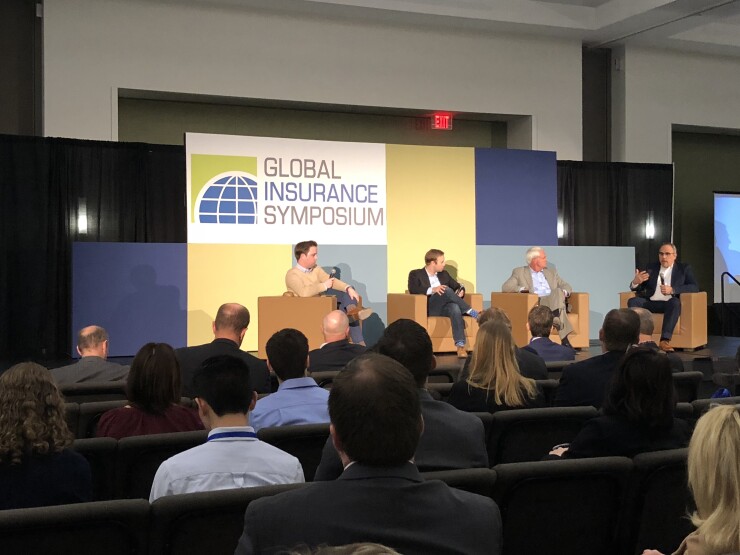Artificial intelligence is a hot topic in the insurance industry, but implementing it requires a robust business case and strong change management in order to get the most value.
That's according to panelists who delivered remarks on April 25 at the Global Insurance Symposium in Des Moines, Iowa. Ted Stuckey, head of the global innovation lab for QBE Insurance, says that his company was looking for a “vertical AI” product that could help it automate underwriting for its varied commmercial clients. It selected a platform from the insurtech RiskGenius that analyzes policy language to identify options for better matching coverage to similar clients.
QBE wanted to streamline new product development for its wide range of clients. "We had well over 100 different cyber exclusions; they ran the gamut from completely open to completely closed," Stuckey explained. RiskGenius' ease of use was a key selling point in its selection.
"Not only is it an AI model, it's the user interface and data layer -- soup to nuts. Our product pros can interact with RiskGenius the way our data scientists and back-end engineers can," he added.

RiskGenius founder Chris Cheatham said that QBE is an ideal client because of its clear business case for using AI.
"A lot of times people jump in and try AI without understanding the problem they're trying to solve," Cheatham said. "Find the problem first, then figure out if AI can solve it, and what else you need to get the full solution."
Because the insights of AI have to be decipherable to many different end-users, Cheatham added that RiskGenius is working more on its user interface at the moment than its machine-learning platform.
When it comes to integrating AI, Stuckey concedes that some employees can be reticent to have a machine take over some of the skilled work that they're doing. But the results speak for themselves, he said, noting that QBE is able to save 750 man-hours a year with a team of lawyers that used to have to spend their time proofreading rather than helping develop new products.
"The sales pitch there is about the sheer volume of the data. With 250 million data points a day you can't have a big enough data science team. You have to have something exponentially more powerful than a team of humans," he says "The AI's doing the heavy lifting. With that data, as it gets structured by the AI, you better models from it, allowing you to do more value-added work actually building the models rather than normalizing the data."





